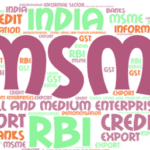Niharika Naik| IMAWS |
The Indian pharmaceutical industry experienced nearly 5% year-on-year growth valued at about $49.7 billion in the financial year 2023. Maintaining a steady double-digit rise in numbers, research suggests price inflation and new product launches are a few of many factors contributing to the rise of Indian pharmaceuticals.
The outbreak of COVID-19 met with unprecedented growth in Indian pharmaceuticals. However, research suggests an increase in exports, large-scale pharmaceutical production, and tourists seeking affordable Indian medicine, has ensured continued industry growth post-pandemic.
Founded in 1961, The Indian Drug Manufacturers’ Association (IDMA), working alongside the Indian Government, is instrumental in making decisions regarding pricing, policy control, and drug regulations. IDMA is India’s largest pharmaceutical association amalgamating 8 State Boards with over 11000 members.
IDMA Gujarat is India’s largest State Board consisting of 350+ members. Manufacturing units in Gujarat account for 40% of India’s total pharmaceutical production, including about 70% in exports. Running quality checks, adherence to global compliance guidelines, and organising educational workshops, and seminars include the IDMA scope.
CMR spoke exclusively with Mr Sumit Agrawal, Hon. Secretary of The Indian Drug Manufacturers’ Association (IDMA), Gujarat, for regional industry analysis.
When asked about challenges plaguing the pharmaceutical industry, Mr Agrawal highlighted the upgradation of manufacturing facilities in accordance with global standards. “We must introduce greater automation, digitisation, especially for manufacturing high-value products. Establishing an ecosystem of research and innovation is paramount,” he mentioned.
“Reducing dependence on imported APIs is required,” said Mr Agrawal. An Active Pharmaceutical Ingredient or API is crucial in preliminary drug development. Research suggests about 70% – 80% of APIs are imported from China for Indian use.
“Developing capabilities for increasing digital connections with healthcare professionals, consumers, and patients is required. The biggest consumer demands in the Indian pharmaceutical industry are accessibility to high-quality healthcare at an affordable price, and remote consultations provided by telemedicine sectors,” said the Hon. IDMA Secretary.
Lapses in pharmaceutical drug quality causing life-threatening consequences are one of the largest concerns of the industry. Current scandals according to research include a crackdown on 18 Indian pharmaceutical companies for poor manufacturing processes resulting in cancelled licences. Moreover, The World Health Organisation ordered a probe into 4 Indian-manufactured cough syrups linked to serious kidney injuries and about 66 child deaths in The Republic of Gambia in 2022.
Mr Sumit, IDMA Gujarat, Hon. Secretary, highlighted the pharmaceutical industry’s association with human health and rigorous quality testing. “We have quality control checks at every stage of the production process – right from the raw material, to the finished production stage. In fact, testing and monitoring of products continue even after being dispatched from the factory. However, the time required for testing may vary from product to product, lasting anywhere between 1 day to a week,” he remarked.
“The Jan Vishwas Bill passed by the Government of India has decriminalised certain sections of the Drugs and Cosmetics Act providing some relief to genuine pharmaceutical manufacturers, bringing India’s laws in line with similar laws in other countries. The New Drugs and Cosmetics Act is also under preparation, likely to pass in the next Parliament session,” said Mr Sumit Agrawal, IDMA Gujarat Hon. Secretary, when asked whether recent government legislation had aided the Indian pharmaceutical landscape.
The popular culture terminology anti-vaxxer refers to the unwillingness of individuals to undergo all kinds of vaccinations ranging from COVID to cervical cancer. According to research, COVID vaccines have been made available by German governments since December 2022.
However, approximately 20% of the population was averse to the needle. When asked about similar anti-vaxxer sentiments back home, Mr Agrawal said, “This is a very irresponsible, unscientific statement not backed by data. On the contrary, anecdotal evidence suggests COVID vaccines, especially in the case of India, helped reduce the severity of the last wave and significantly reduced the death toll.” Every 1 in 5 pharmaceutical tablets consumed worldwide are produced by Indian manufacturers. When asked about the future of the industry, Mr. Agrawal, Hon. Secretary of IDMA Gujarat said, “The growth of the pharmaceutical industry has consistently been more than one-and-a-half times the growth in Indian GDP. From a current size of $50 billion, the industry has been assigned a target of $500 billion by 2047, when India turns 100. There is a very large demand and tremendous overseas opportunities for the Indian pharmaceutical industry to perform well.”









